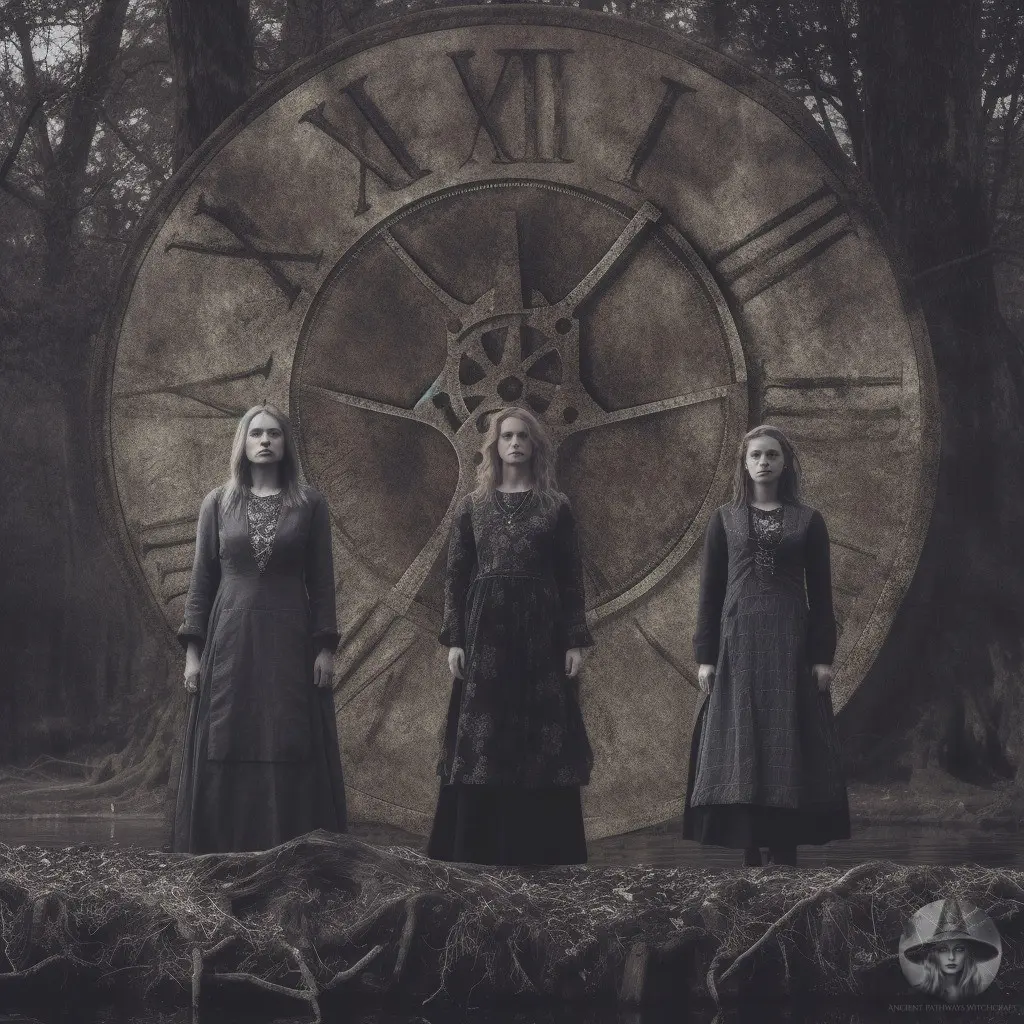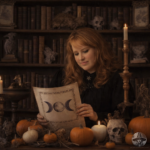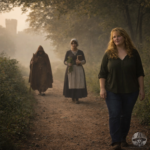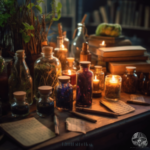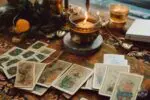As you dip your toes into the enchanting world of magical living and modern Paganism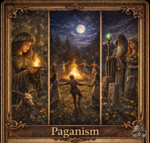 Paganism is a diverse family of spiritual traditions rooted in pre-Christian, nature-centered practices. It honors cycles of time, relationship with the land, and multiple expressions of the sacred across cultures and history. →→ Click for more details ←←, you'll frequently stumble upon the words 'witch', 'Wiccan', and 'Pagan'. Each carries its own story, its unique whisper in the grand symphony of spirituality. Their shared notes create a harmony, yet they each sing their own distinct melody. Just like a mother teaching her child the nuances of language, let's uncover the subtle differences and beautiful connections between these three terms.
Paganism is a diverse family of spiritual traditions rooted in pre-Christian, nature-centered practices. It honors cycles of time, relationship with the land, and multiple expressions of the sacred across cultures and history. →→ Click for more details ←←, you'll frequently stumble upon the words 'witch', 'Wiccan', and 'Pagan'. Each carries its own story, its unique whisper in the grand symphony of spirituality. Their shared notes create a harmony, yet they each sing their own distinct melody. Just like a mother teaching her child the nuances of language, let's uncover the subtle differences and beautiful connections between these three terms.
Wicca, often seen as a tradition of Witchcraft, was introduced to the world in the 1950s by a man named Gerald Gardner. Today, it stands like an old tree in the forest of Paganism, with its roots deep in tradition and its branches reaching out to modern seekers. While some debate if Wicca is a true reflection of the ancient practices of Witchcraft, many use Wicca and Witchcraft as synonymous terms. Yet, the world of Paganism, much like a mother's embrace, is wide enough to hold more than just Wicca.
Not all witches identify as Wiccans, some align with Paganism, while others prefer entirely different labels. Just as in a garden, where not all flowers are roses, not all Pagans are Wiccans. The term “Pagan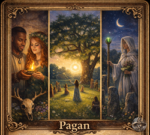 Pagans are people whose spiritual identity exists outside the dominant Abrahamic religions. The term includes a wide range of cultural, ancestral, and spiritual paths, often connected through reverence for nature, cycles, and lived relationship with the world. →→ Click for more details ←←”, originally used to describe country folks, came to symbolize those who clung to their old religions as Christianity blossomed.
Pagans are people whose spiritual identity exists outside the dominant Abrahamic religions. The term includes a wide range of cultural, ancestral, and spiritual paths, often connected through reverence for nature, cycles, and lived relationship with the world. →→ Click for more details ←←”, originally used to describe country folks, came to symbolize those who clung to their old religions as Christianity blossomed.
Remember, the term "Paganism" acts as a gentle umbrella, sheltering various traditions under its broad canopy. Each group blossoms in its own way, with its unique practices and beliefs. Thus, any general statements about Wiccans and Pagans should be seen as an overview, rather than an exact reflection of every tradition.
Are you a seeker of knowledge, drawn to the allure of the Pagan movement? Or perhaps a parent trying to understand a child's spiritual quest? Or maybe you're simply yearning for a spiritual path that feels like a homecoming? For many, an earth-based spirituality feels like a soft, familiar blanket, a return to a source of profound comfort and solace. For others, it’s an exploration, a trek into the new and the exciting.
When Gerald Gardner brought Wicca into the public eye in the 1950s, he sparked a flame that many modern Pagans warmed themselves by. However, many witches and Pagans preferred to keep their spiritual fires burning without transitioning to Wicca.
In essence, “Pagan” shelters various spiritual belief systems beneath its branches, with Wicca being just one of many. Just as Christianity sprouts into Lutheran, Methodist, or Jehovah’s Witness, Paganism blooms into Wiccan, Asatru, Dianic, or Eclectic Witchcraft.
In the magical spectrum, you'll also find Christian witches who intertwine their belief in the Christian god with a Wiccan goddess, practitioners of Jewish mysticism or "Jewitchery", and even atheist witches who wield magic without following a deity.
Let's also discuss magic. Witchcraft, for some, is seen as a skill set, separate from spirituality, painting a picture where one doesn't need to engage with the Divine to be a witch. However, for others, Witchcraft is more than a set of skills, it’s a religion, a way to connect with the gods of their chosen traditions through the canvas of magic and ritual.
Imagine magic as the music of the universe and witches, its musicians. Some choose to play this music in the orchestra of Wicca or Paganism, while others compose their own solo performances. Often, you'll hear of "eclectic Witches", individuals who craft their own unique blend of witchcraft, gathering wisdom and rituals from various sources. They approach magic as a skill set, a toolbox of sorts that can be used independently of their spiritual beliefs. Simply put, one doesn't have to be in harmony with the Divine to play the music of witchcraft.
Conversely, many perceive Witchcraft as not merely a skill but an all-encompassing spiritual path. A way of life that weaves magic and ritual into a sacred tapestry, bringing them closer to the gods of their traditions. If you feel the call to see your practice of witchcraft as a religion, you're free to do so – or if you prefer to treat it as a skill set, separate from your religious beliefs, that's perfectly fine too.
As we explore this captivating world together, remember, like a mother's love, the world of Paganism and Witchcraft is vast, diverse, and accepting. There is room for you, regardless of how you identify or choose to express your spirituality. Whether you're a Wiccan, a witch, a Pagan, a combination of these, or none of them, your path is valid.
So, whether you are a seasoned practitioner seeking to expand your knowledge or a novice just stepping on the path, this journey into the enchanting realms of Wicca, Witchcraft, and Paganism promises to be as enlightening as it is intriguing. Perhaps you've already found your spiritual home, or perhaps you're still seeking. Either way, know that your quest for understanding and connection is a beautiful testament to the human spirit's enduring curiosity.
In this journey of discovery and understanding, each step brings us closer to the heart of these spiritual paths, revealing the warmth, the mystery, and the magic that lie within. Let this be a gentle guide, a beacon, as you navigate your way, just as a mother tenderly guides her child into the grand adventure that is life. And remember, no matter which path you walk, the journey itself is the destination. Happy exploring!
